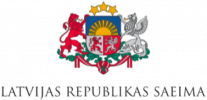On 16-17 January, the joint meeting of the Education, Science and Culture Committee and the Security and Defence Committee of the Baltic Assembly was held in Riga. It showcased the commitment of the Baltic States to bolstering comprehensive defence and fostering resilience among youth. Key discussions revolved around two primary themes: integrating comprehensive defence into education and promoting patriotism through conscription.
Before the meeting, Ivars Nakurts, Deputy Chief of the State Fire and Rescue Service at the Ministry of the Interior, was awarded the Medal of the Baltic Assembly for his contribution to strengthening civil protection in the Baltic States and promoting cooperation between the countries.
Comprehensive defence in alignment with education systems in the Baltic States
The session began with Juris Viļums, Chair of the Education, Science and Culture Committee, emphasising the importance of comprehensive defence education across all levels. He highlighted that these initiatives aim to prepare youth for security challenges, enhance societal resilience, and instil a deeper understanding of national defence.
Jānis Bērziņš, Lead Researcher at National Defence Academy of Latvia, delved into the evolution of hybrid and cognitive warfare, stressing the need for resilience against psychological operations and cyber threats. He underlined that society has become a part of warfare, meaning that media literacy and critical thinking in combating disinformation and fostering national identity is a necessity.
Building on this, Silvija Amatniece, Parliamentary Secretary of the Ministry of Education and Science of Latvia, elaborated on proactive measures such as competence-based learning and the “National Defense Training” course, a mandatory secondary school subject. These initiatives aim to strengthen national security awareness among students. She also highlighted collaborative efforts like the “Drošs Internets” platform to promote cybersecurity and media literacy.
Aare Jamnes, Head of National Defence Education at the Defence Resources Agency of Estonia, shared insights into the mandatory national defence education program. This program integrates military and educational sectors, ensuring students receive theoretical and practical knowledge, and fostering a sense of duty and preparedness from an early age.
Irena Raudiene, Head of Educational Programmes in Lithuania, outlined the civic education framework in Lithuania, which includes life skills and mandatory community service in schools. She stressed the significance of non-formal civic activities and the ongoing development of teachers' civic competence.
Lars Mejern Larsson, Vice Chairman of the Committee for Knowledge and Culture in the Nordic Region of the Nordic Council, praised these efforts and expressed interest in enhancing Nordic-Baltic cooperation in the fields of security and education.
Conscription as a vessel for fostering resilience and patriotism
The second session, led by Uģis Rotbergs, Chair of the Security and Defence Committee, focused on the role of conscription in building a resilient and patriotic youth. He highlighted that through conscription, individuals can gain a sense of duty, discipline and responsibility toward their country, which reinforces their connection to identity and shared values.
Karolis Aleksa, Vice Minister of National Defence of Lithuania, emphasized conscription as a key strategy against regional threats. He detailed the flexible conscription policies in Lithuania, including initiatives to involve women and diaspora members, and called for greater exchange of best practices among the Baltic States.
Rolands Heniņš, Deputy State Secretary of the Ministry of Defence of Latvia, discussed the reintroduction of conscription in Latvia and its benefits in fostering societal cohesion. He highlighted the importance of diverse service options and incorporating technological advancements like AI and drones.
Adding to this, Aare Jamnes provided insights into the conscription model of Estonia, noting high voluntary participation, which is rooted in the education system. He stressed the importance of aligning military and educational standards to enhance not only resilience but also the health of the youth.
Kristers Grauze emphasized the need for clear communication and comprehensive information campaigns to promote conscription. He advocated balancing youth specializations with military needs for effective solutions.
Lars Mejern Larsson added that comprehensive defence is a pressing matter for the Nordic countries and their cooperation as well. He stated that such conversations on the importance of comprehensive defence serve as an inspiration to further discussions on cooperation with the Baltic Assembly.
The meeting concluded with reflections on the necessity of comprehensive defence education and conscription in cultivating a unified society. To achieve this efficiently, cooperation among regions and the exchanging of practices is essential. The Baltic Assembly reaffirmed its commitment to ongoing collaboration in the fields of defence and education, aiming to strengthen resilience and unity in the region, especially in the face of evolving security challenges.
Photos
© Saeima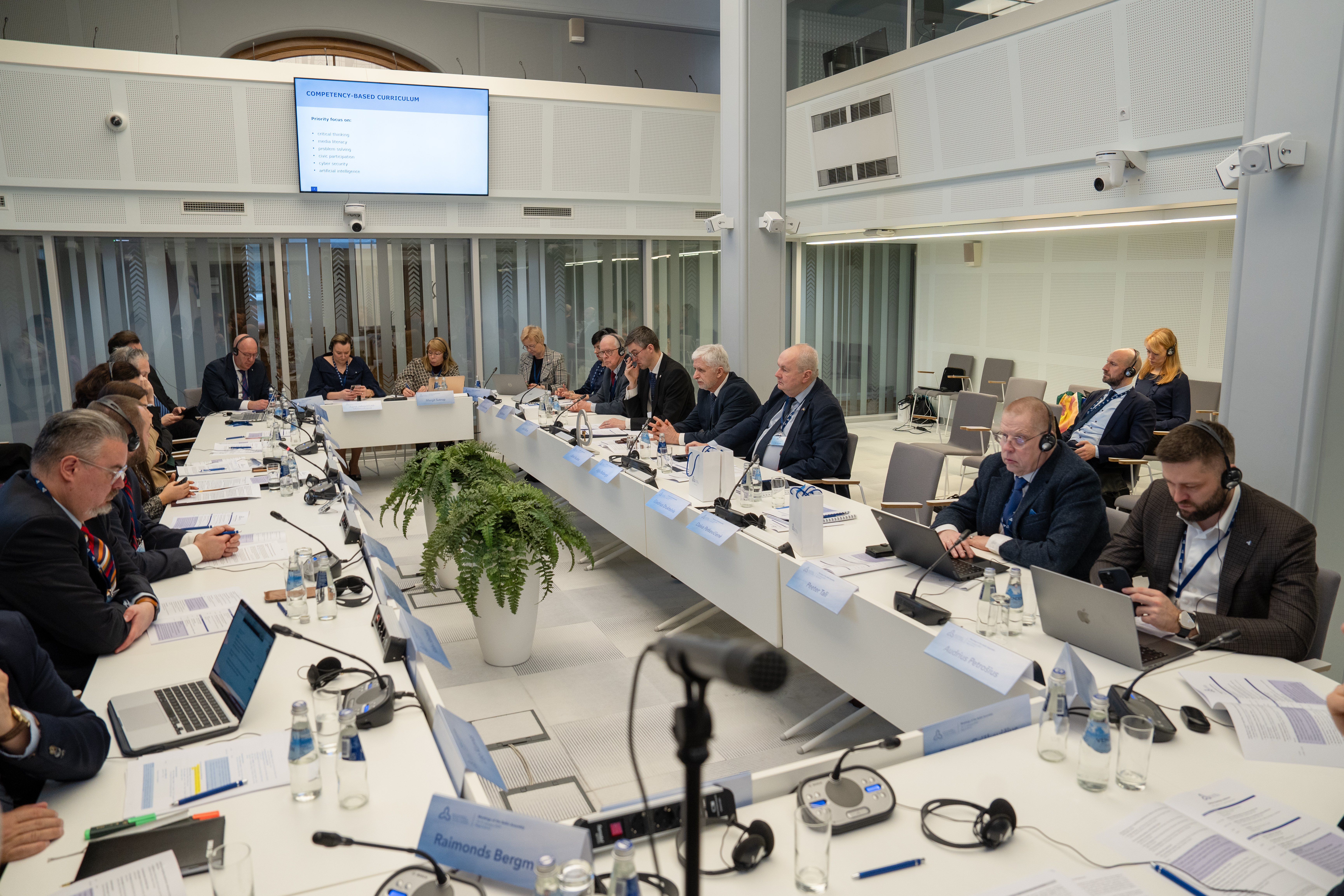
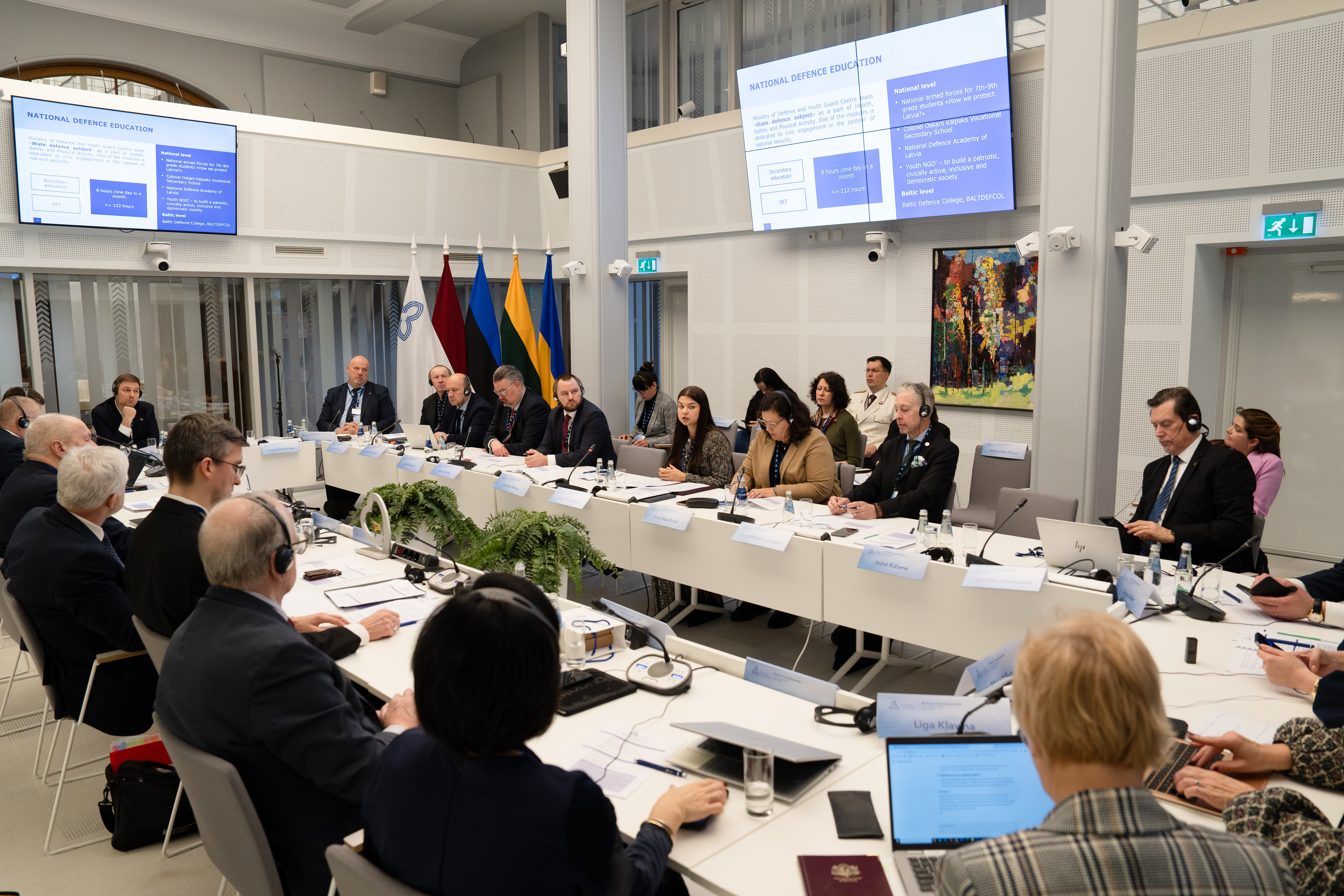
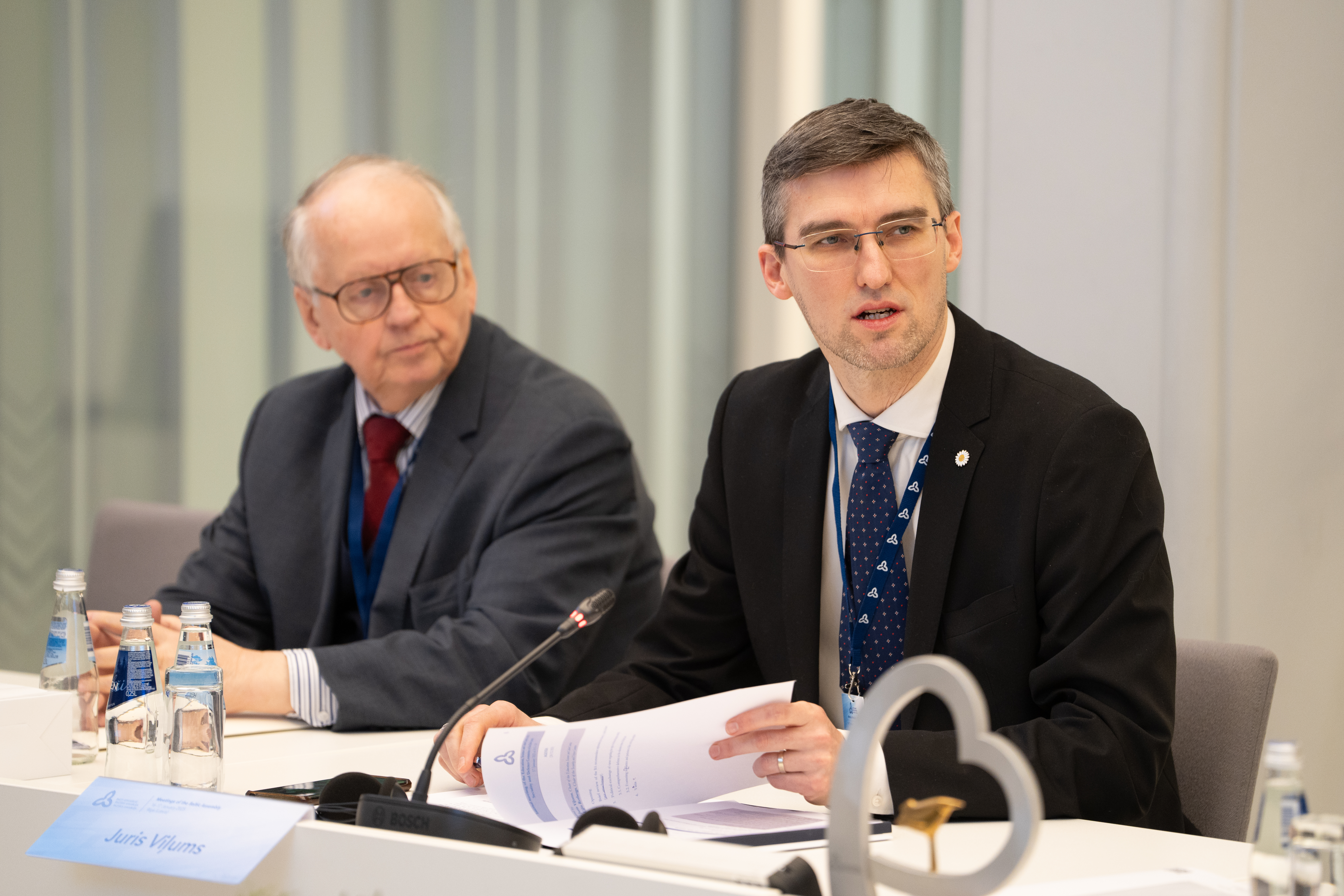
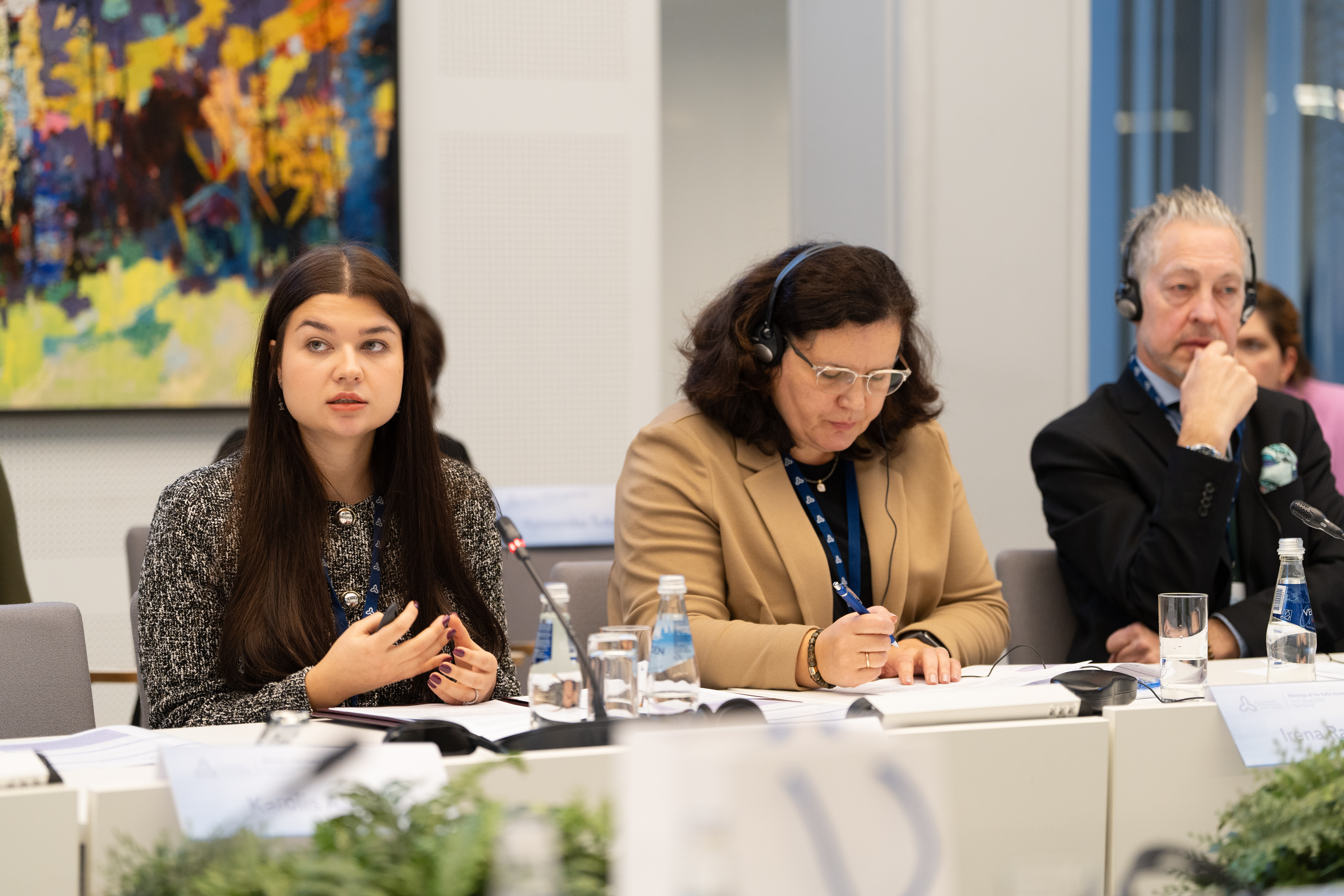
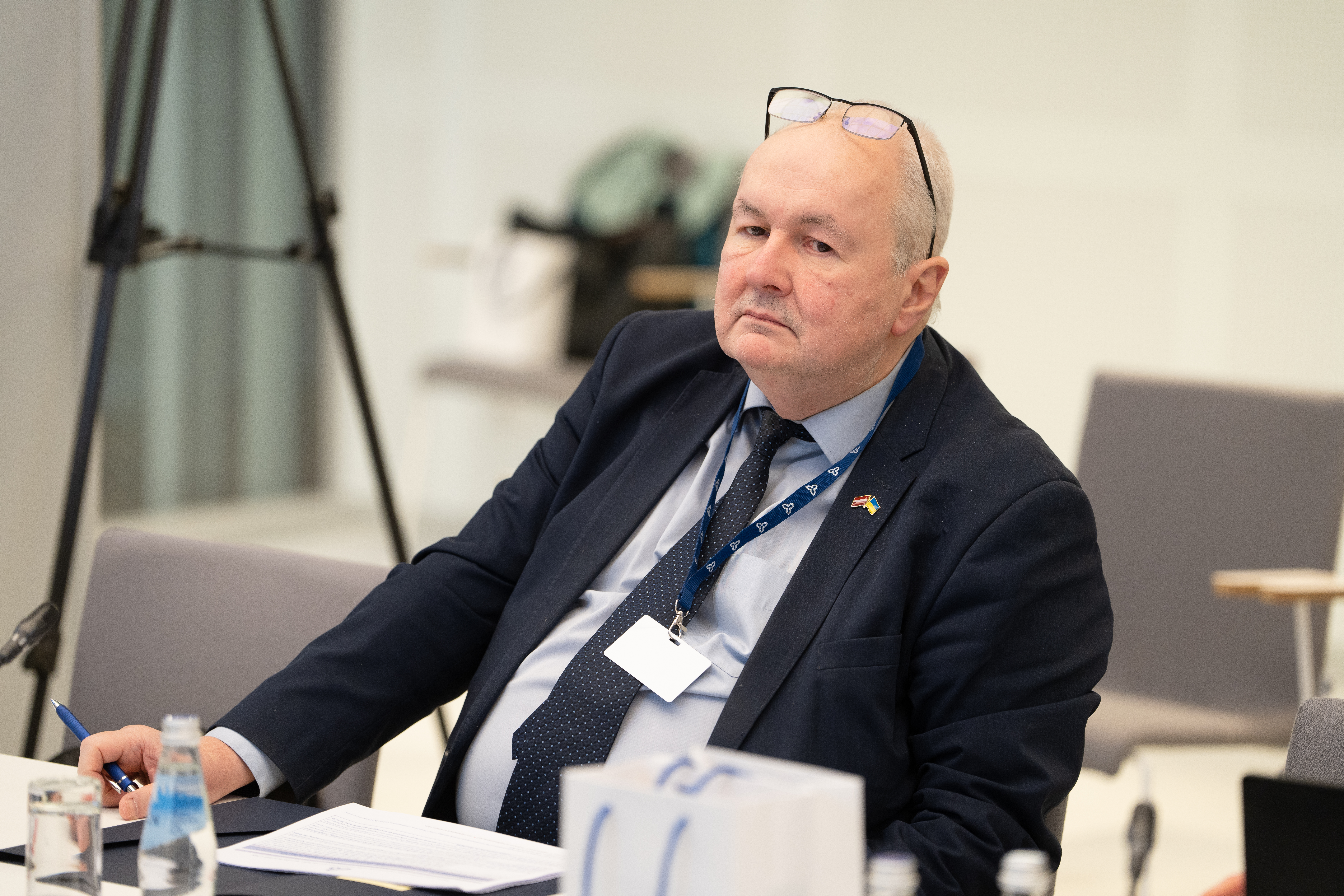
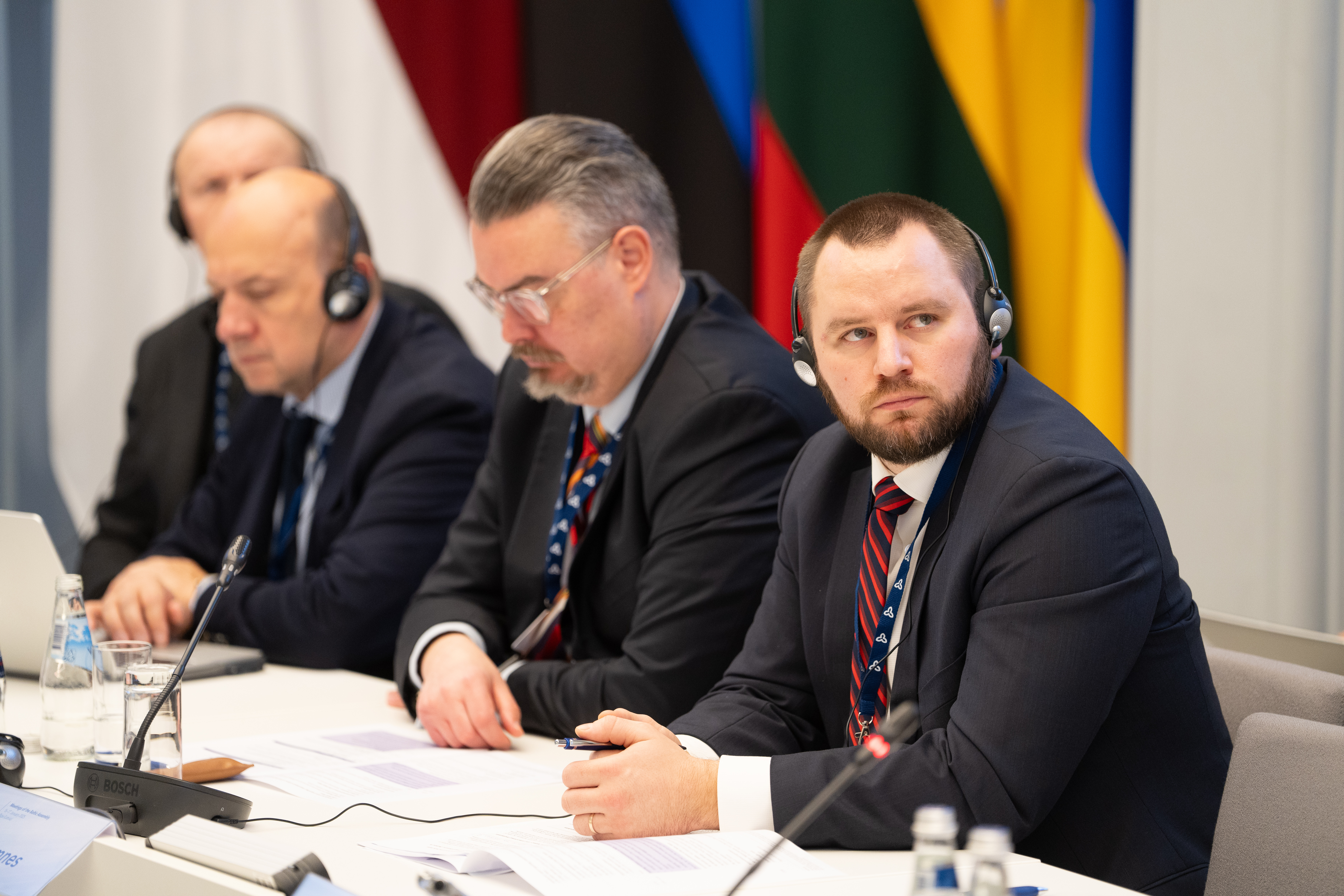
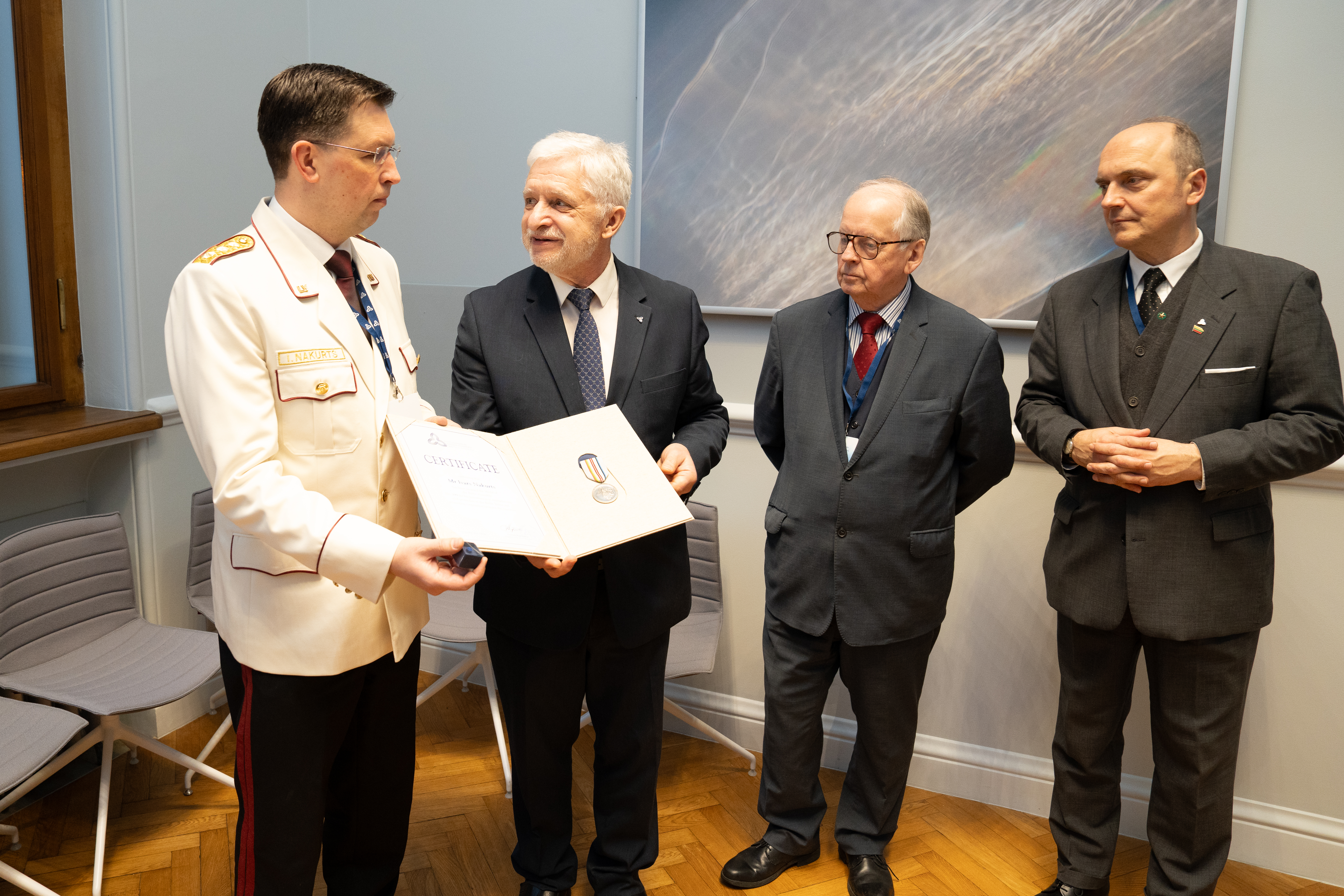
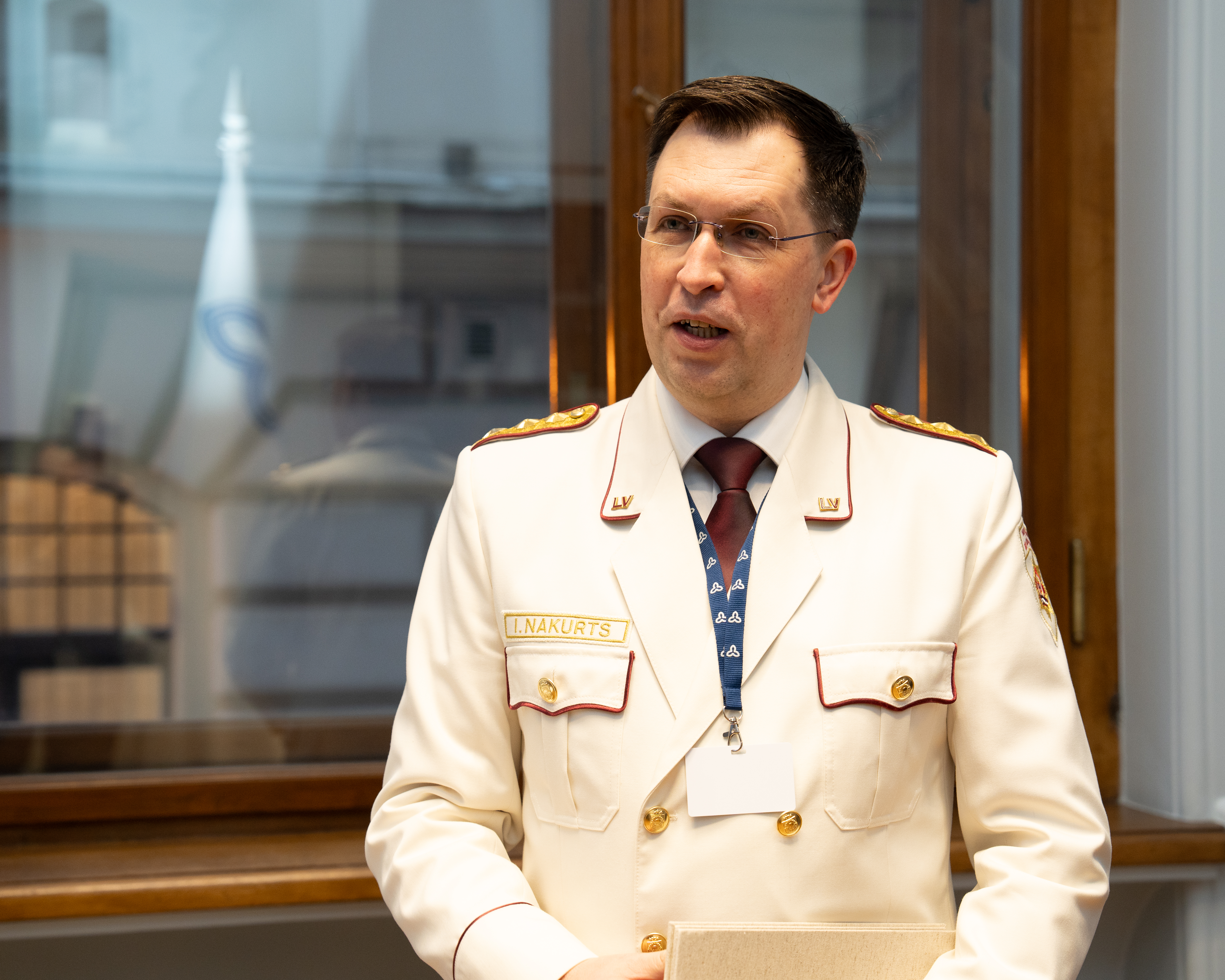
 Print
Print 

